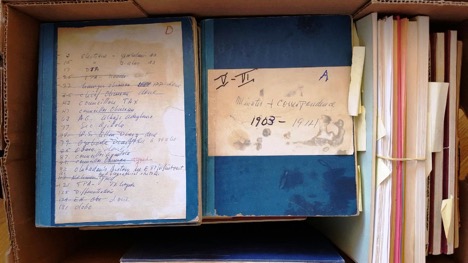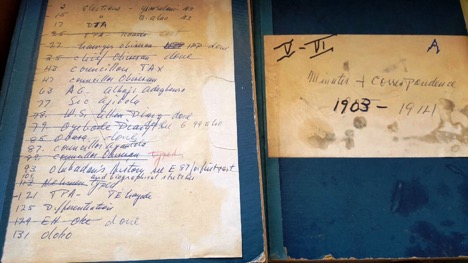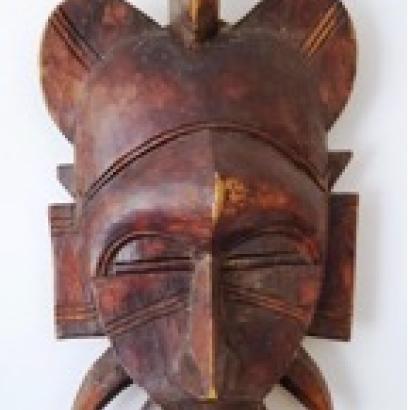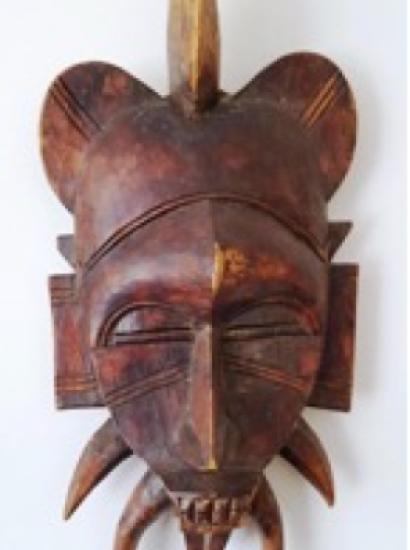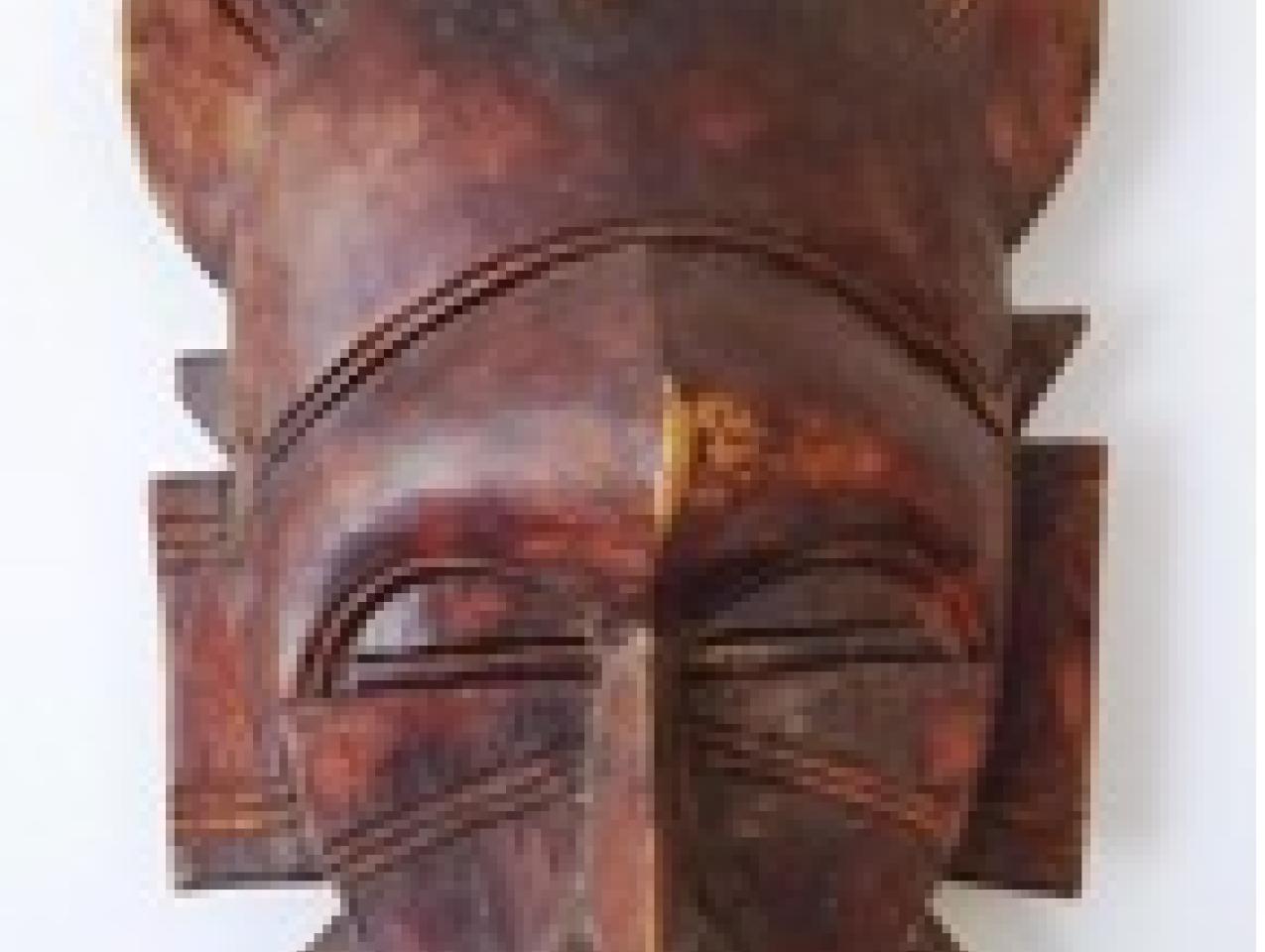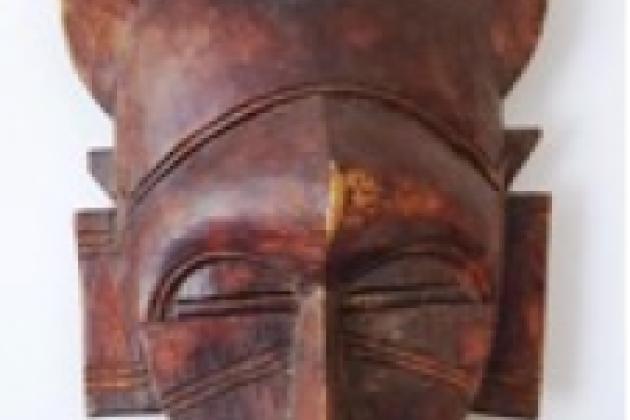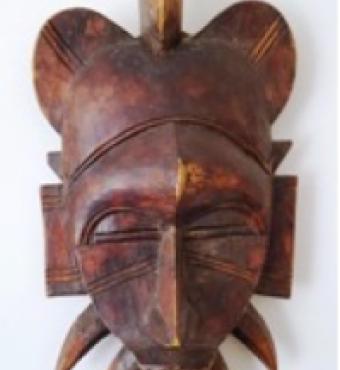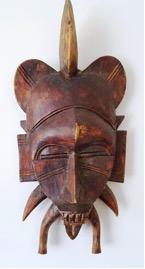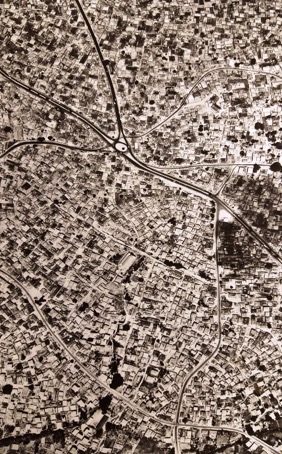
“This is an aerial view of the city of Ibadan in 1961. The principal constituent of Ibadan society is the extended family or kinship group called a patrilineage.” These were the first two sentences George D. Jenkins said to my colleague, Danielle, and me as he welcomed us into his house in Point Reyes Station, California, on April 16, 2015.
What you see here, Jenkins continued, pointing to the artifacts on the wall and the shelves, are from Nigeria, particularly from the Yoruba. The passion for Ibadan, Adelabu (more later), and Nigeria were still there, though Jenkins, except for a brief moment after receiving his PhD in political science from Northwestern University, did not pursue an academic career.
Danielle and I were in visiting Jenkins’s house to assess the supplementary materials (additional research notes and pictures of Adelabu) on Nigeria, in general, and the Yoruba and Ibadan, in particular, that he plans to add to his papers at the Hoover Institution Archives. As a result of that trip, follow-up conversations, and a second trip (Sept. 2, 2015), which coincidentally fell on a day before the late Adelabu’s posthumous centenary celebration (September 3, 1915–March 20, 1958), Hoover has now acquired an increment to the George D. Jenkins papers.
Before we went on the second trip, my friend, Adeyinka Fashokun (who is aware of the George D. Jenkins Papers and Hoover’s rich holdings on Nigeria) had sent me a link to an article in Vanguard, a Nigerian newspaper, with the headline “Adelabu Penkelemesi Is My Political Role Model–Obasanjo.” According to the article, the quote by Obasanjo, the former president of Nigeria, was in reply to members of the Adelabu family (led by Chief Aare Tunde Alabi) who were visiting the former president to ask him to be the patron of Adelabu’s posthumous centenary celebration. Another article that caught my eye was by Sayelbatimes in which he writes that Chief Aare Alabi pleaded with Obasanjo to “carry Adelabu to the World.” My reaction was that Adelabu had already been carried to the world thanks to George D. Jenkins.
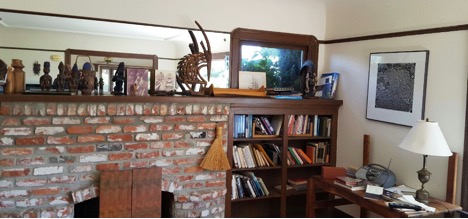
Adegoke “Penkelemesi” Adelabu is a famous Nigerian politician who died in a road accident in 1958. In 1973, Jenkins and Kenneth W. J. Post wrote The Price of Liberty: Personality and Politics in Colonial Nigeria, the first and only comprehensive biographical study on Adelabu to date. "Penkenlemesi," Adelabu’s nickname, is still used today in Nigeria (e.g., “the penkenlemes of Nigerian politics") as a vernacular of the English words "peculiar mess,” repeatedly used by Adelabu to address his opponents.
The George D. Jenkins Papers, which cover the period from 1897 to 1970, are housed at the Hoover Institution Archives and include twenty-nine manuscript boxes (without the latest addition), three card file boxes, and twenty-three microfilm reels (including the diaries of Akinpelu Obisesan), for a total of 16.8 linear feet. The contents and potential research topics include speeches and writings, notes of interviews, notes on important personalities, correspondence, minutes of meetings and reports of the Ibadan City Council, Ibadan District Council, the Ibadan Provisional District Council and its respective subcommittees, political groups, the Ibadan Tax Payers Association, the Ibadan Town Planning Administration, chieftaincy (e.g., Chief Salami Abaje), “Who’s Who” in precolonial and colonial Nigeria, urbanization, the Ibadan District Council election and results, nationalism, city planning, councilors, social structure, and newspaper clippings.
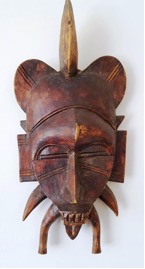
All the materials are available and open to the public at the Hoover Institution Archives.
Below are photos of the latest addition (including some of Adelabu) to the George D. Jenkins Papers. (The above photos were taken on September 2, 2015.)
